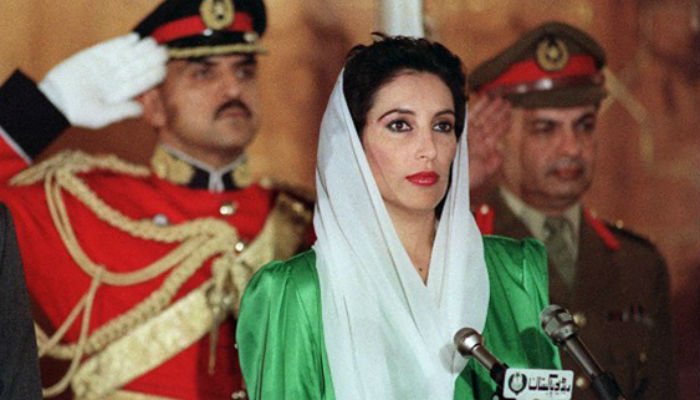12 years ago on December 27, 2019, Ms Benazir Bhutto, twice elected Prime Minister of Pakistan, the first woman head of government in any Muslim-majority state was assassinated in the midst of campaigning and in the capital of the country.

As the former head of Human Rights Commission of Pakistan and a veteran activist, I.A. Rahman wrote, Benazir Bhutto “inspired the hope that she could put democracy back on the rails. Inability to fulfil this expectation dented her image somewhat. Allowed to complete neither of her two terms and hounded from one court to another for a long time, she was compelled to spend a decade in self-exile. Yet the establishment never stopped fearing her as a potential game-changer; a threat that could only be averted with physical liquidation.”
According to former Member of National Assembly, Farahnaz Ispahani “almost as painful as Benazir Bhutto being taken away from her family, friends, political supporters, and supporters of her ideology, is the vast gap that is visible in Pakistan without her leadership. Lost to us at merely 54 years of age, her wisdom, sagacity and experience had just come into its prime. Today, Pakistan’s economy is failing not merely faltering and Pakistan is ruled by its own version of the global trend of clueless populist celebrity leaders. A three-time elected Prime Minister was first unseated and then banned from office and jailed, amid a spurt of disputed judicial verdicts. There is no visionary leadership anywhere on the horizon, reminding us constantly of Benazir Bhutto’s words and vision, which are not as well known to a new generation that has grown up without knowing her.”
As Rahman notes “Benazir Bhutto’s positive work as prime minister included giving the government a humanitarian face. The commutation of death sentences to life imprisonment was followed by banning of lashing (except for Hadd cases) and public hanging. The plan to offer the disadvantaged relief through special tribunals did not work, so a separate ministry of human rights was created. Her effort to amend the procedure in blasphemy cases was scotched by the conservatives, but her instructions not to arrest any accused without a proper inquiry did lead to a fall in such cases. Women activists complained that she didn’t do anything substantial for them, but they could not deny the favourable ambiance Benazir had created. And her uncompromising resistance to pseudo-religious militants was not matched by anyone, with the possible exception of Afzal Lala of Swat. The hurdles that held Benazir back included the absence of a culture of democracy; the habit of political parties to treat one another as their worst enemies and a tendency among them to destroy political rivals with military’s help; the personality cult in the PPP and its centralised decision-making without democratic centralism; and the politicians’ failure to remember that what was not permitted to authoritarian rulers was prohibited for them too.The PPP also suffered as a result of its shift away from a left-of-centre platform as it blunted the edge it had over the centrist outfits.”
Finally, Rahman asserts “An assessment of Benazir Bhutto’s prime ministership usually takes two forms: one, that she was incapable of establishing a democratic order, and, two, that the establishment did not let her work. A realistic view will begin by noting the absence of a stable, efficient and fair-minded state apparatus that could relieve her of routine chores and allow her to concentrate on broad political and socio-economic issues. Also, no politician could (or can even today) roll back the Zia legacy through a frontal attack, except for a popular revolution. Besides, the deeply entrenched, highly trained and generally better informed establishment needed to be outmanoeuvred in a subtle and adroit manner. Benazir Bhutto was outmanoeuvred by the dominant power centre and she might also have sometimes unwittingly helped it. The real losers as a result of Benazir Bhutto’s elimination from politics were the people. Their concerns remained off the government’s agenda and the dream of a democratic and egalitarian Pakistan receded even further.”
![]()





